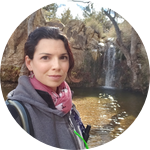About This Project
Austria’s Lake Altaussee is a remote Alpine lake. A long duration heat budget study here will evaluate physical effects on ecologically critical lake processes susceptible to climate change already observed in this area. We will quantify and characterize stratifying and de-stratifying mechanisms, surface and benthic heat flux, and internal physical lake processes associated with mixing. Results from this unique study will inform climate change predictions in vulnerable alpine regions.
Ask the Scientists
Join The DiscussionWhat is the context of this research?
Heat budget studies are an effective way to quantify key hydrological processes. They require detailed knowledge about the entire lake system, however, and are thus often prohibitive without significant research investment.
Lake Altaussee is an advantageous study area. The lake is pristine, with little human impact, and is situated in an alpine region sensitive to (and indicative of) future climate effects.
This study takes advantage of a recent effort to fully characterize the lake and surrounding environment. Detailed heat flux observations would not be possible without the full and accurate bathymetry and hydrography measurements taken recently by our collaborators. Thus this study advantages an opportunity unique to this lake at this time.
What is the significance of this project?
This long-term study will identify Alpine lake processes and outcomes sensitive to climate change. It is supported by the Austrian Federal Agency for Water Management, and designed to supplement the monitoring programs initiated to support The Austrian Strategy for Adaptation to Climate Change.
Alpine lakes face increasing threats from urbanization and climate change, and are often selected as a sensitive study area. Quantifying hydrodynamic mechanisms associated with surface heat flux and seasonal stratification in a pristine Alpine lake forms a baseline for future comparison - both at this lake and at lakes around the world.
What are the goals of the project?
Our project will accomplish three goals. First, we will provide baseline temperature and oxygen observations related to climate change processes at Lake Altaussee.
Second, this baseline study will inform future long-term studies to observe effects on seasonal to climate time scales. Instruments purchased with this funding will be re-deployed at Lake Altaussee and continue to return valuable data beyond the lifetime of this project.
Third, data will be made publicly available in a variety of formats. Raw data will be available as a QC and data processing training set, and processed data will be available for researchers and the public.
Budget
The centerpiece of the study is a mooring array to continuously monitor lake temperature at different depths. Hobo temperature loggers are an effective tool to inexpensively monitor temperature at time scales relevant to our study. These sensors will be attached to mooring lines held in place by anchors and mooring floats. An additional oxygen sensor will measure dissolved oxygen, critical to lake ecology.
Additional equipment related to monitoring atmospheric conditions and surface groundwater contributions are either already in place, or provided by our research partners. Diving support and ship time to deploy and recover these instruments has been donated by local municipal authorities.
We are committed to providing long term observations. These instruments will be continually deployed past the initial experiment to support the ongoing research interests at Lake Altaussee. Data and results will be publicly and freely available.
Endorsed by
 Project Timeline
Project Timeline
This project, a key component of the interdisciplinary Lake Altaussee research study, will start in May 2023 in support of the conservation programs planned during the Altaussee region's 2024 "Capitol of Culture" event. Scientists at the Walter Munk Foundation will oversee all aspects of the project timeline. The project will conclude in June 2024 with instrument recovery and subsequent re-deployment.
Apr 06, 2023
Project Launched
May 01, 2023
Project launch
May 29, 2023
Source all instruments and gear
Jun 09, 2023
Travel to Altaussee
Jun 14, 2023
Deploy the mooring array
Meet the Team
Gregory Sinnett, Ph.D.
Greg is a nearshore physical oceanographer with extensive field experience related to heat budget studies. He has characterized surf zone air/sea interaction and surface heating processes, internal waves, and new ocean observing instruments. He is an expert in hydrographic data analysis, leading multiple published studies.
Greg began his science career as an engineer, working to design semiconductor manufacturing processes. His passion for earth science pulled him away to study Oceanography, first at the University of Maine (M.S.), then at the Scripps Institution of Oceanography (Ph.D.) Now, Greg works to select and conduct high impact research, educational and conservation related projects.
Project Backers
- 6Backers
- 111%Funded
- $6,705Total Donations
- $1,117.50Average Donation

